Total Knee Replacement Pain at Night
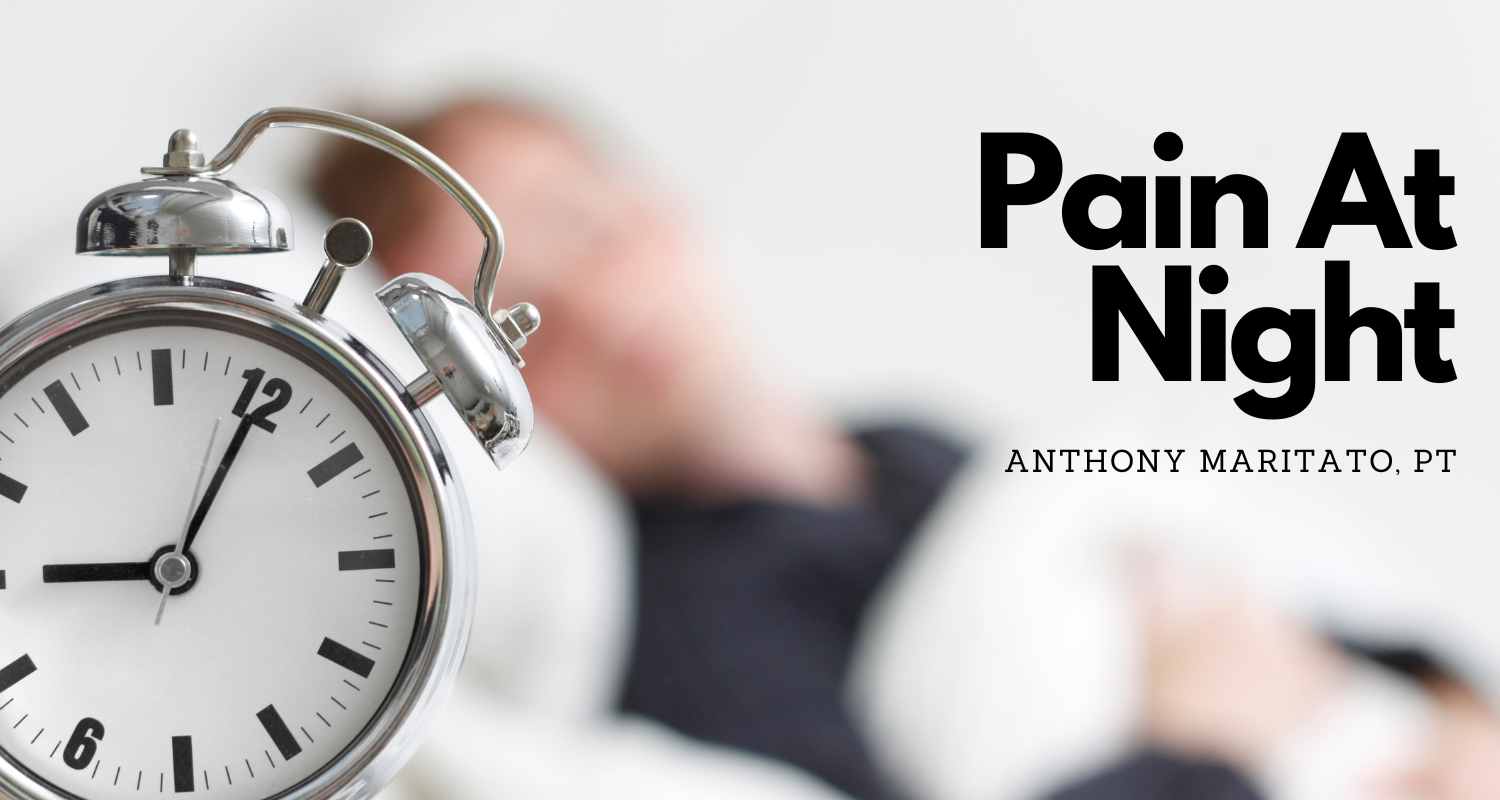
What to Expect
Explore our comprehensive guide on managing ‘Total Knee Replacement Pain at Night.’ Learn about the causes of night pain, effective pain management strategies, best sleeping positions, and more. This article provides practical advice to help individuals navigate the challenges of sleep and pain after knee replacement surgery, promoting a smoother recovery process.
Table of Contents
- Introduction
- Causes of Pain at Night After Total Knee Replacement
- Managing Pain After Knee Replacement Surgery
- Best Sleeping Positions After Knee Replacement
- Positions to Avoid After Knee Replacement Surgery
- Night Pain and Other Symptoms
- Improvement of Sleep Quality After Surgery
- Common Misconceptions and FAQs
- The Importance of Sleep for Healing
- Contacting a Doctor for Sleep Difficulties
- Expectations for Sleep and Pain Over Time
- Conclusion
1. Introduction
Total knee replacement surgery is a common procedure that can greatly improve the quality of life for individuals with severe knee pain. However, managing pain, particularly at night, and ensuring quality sleep after the surgery can be challenging. This article aims to provide practical advice and information to help individuals navigate these challenges.
Understanding the causes of increased pain at night, effective pain management strategies, and the best sleeping positions can make a significant difference in the recovery process. Let’s delve into these topics.
2. Causes of Pain at Night After Total Knee Replacement
After undergoing a total knee replacement, it’s common for patients to experience increased pain during the night. One of the primary reasons for this is the body’s decreased production of endorphins and enkephalins, natural painkillers, during the night. This can result in heightened sensitivity to pain.
Additionally, the lack of distractions that are usually present during the day can make individuals more aware of their pain. Understanding these factors can help patients better manage their pain and set realistic expectations for their recovery process.
3. Managing Pain After Knee Replacement Surgery
There are several strategies that can help manage pain after knee replacement surgery. Applying ice to the knee before bed can help numb the joint and relieve pain. It’s also advisable to limit liquid intake before bed to reduce the need for bathroom trips during the night, which can disrupt sleep and cause discomfort.
If pain medication has been prescribed, taking it an hour before sleeping can help manage pain throughout the night. However, it’s important to follow the prescribing doctor’s instructions regarding the use of pain medication.
4. Best Sleeping Positions After Knee Replacement
One of the best ways to sleep after knee replacement surgery is on your back. This position makes it easy to keep the leg straight, which promotes proper blood flow and supports the healing process. To ensure the knee is getting the proper support, it’s beneficial to prop up the leg with pillows, ensuring the pillow is underneath the length of the knee and calf to avoid bending it.
Another position you can sleep in is on your side, but in a specific way. It’s recommended to sleep so that your operating side faces the ceiling, keeping the pressure off the knee you had surgery on. Placing a pillow or a few between your knees can provide greater support and comfort.
5. Positions to Avoid After Knee Replacement Surgery
While finding a comfortable sleeping position after knee replacement surgery is important, it’s equally crucial to know which positions to avoid. Sleeping on the stomach, for instance, should be avoided as it puts excessive pressure on the knee, potentially irritating the surgical site and hindering the healing process.
Additionally, it’s important to avoid placing pillows behind the knee that was operated on. While it might seem comfortable, having a pillow under the knee can cause it to bend, making healing more difficult and potentially upsetting the surgical site.
6. Night Pain and Other Symptoms
Experiencing pain at night after a total knee replacement surgery can sometimes be associated with other symptoms or conditions. For instance, some patients may also experience neuropathic pain or depressive disorders. These conditions can affect the patient’s overall recovery and quality of life after surgery.
Understanding the correlation between night pain and these other symptoms can help patients and their healthcare providers develop a more comprehensive and effective pain management and recovery plan.
7. Improvement of Sleep Quality After Surgery
While the initial post-surgery period can be challenging, it’s important to note that sleep quality typically improves over time after a total knee replacement. The body gradually adjusts to the changes, and as the healing process progresses, the pain levels usually decrease, leading to better sleep.
Various studies and data show a typical timeline for sleep improvement after surgery. However, it’s important to remember that each individual’s recovery process is unique, and some may experience improvements sooner or later than others.
8. Common Misconceptions and FAQs
There are several misconceptions about pain and sleep after knee replacement surgery. For instance, some people might believe that severe pain will persist indefinitely or that sleep disturbances are a permanent problem. Addressing these misconceptions can help set realistic expectations and reduce anxiety related to the recovery process.
Additionally, providing answers to frequently asked questions about the topic can be a valuable resource for patients. This could include questions about the typical duration of pain, effective pain management strategies, and the expected timeline for returning to normal sleep patterns.
9. The Importance of Sleep for Healing
Sleep plays a crucial role in the healing process after a total knee replacement surgery. During sleep, the body focuses on growing new tissue and restoring health, which is essential for recovery. Lack of quality sleep can hinder this process and prolong the recovery period.
Understanding the importance of sleep for healing can help patients prioritize good sleep hygiene and take steps to improve their sleep quality. This could include following the recommended sleeping positions, managing pain effectively, and maintaining a regular sleep schedule.
10. Contacting a Doctor for Sleep Difficulties
If a patient finds it extremely difficult to sleep after surgery, it’s important to contact a doctor or pain management specialist. Poor sleep can slow the recovery process, increase the risk of accidents, and potentially affect the final outcome of the surgery. Therefore, any significant sleep disturbances should be discussed with a healthcare professional.
Doctors can provide personalized advice and may adjust the pain management plan or suggest other strategies to improve sleep. Remember, each patient’s situation is unique, and what works for one person may not work for another.
11. Expectations for Sleep and Pain Over Time
After a total knee replacement surgery, it’s normal for patients to experience changes in their sleep patterns and pain levels. However, it’s important to note that these changes are typically temporary. As the body heals, pain levels generally decrease, and sleep quality improves.
Setting realistic expectations for sleep and pain over time can help patients cope better with the recovery process. It’s also important to remember that recovery takes time, and patience is key. With proper care and management, most patients can look forward to significant improvements in their quality of life.
12. Conclusion
Managing pain at night and ensuring quality sleep after a total knee replacement surgery can be challenging, but with the right information and strategies, it’s entirely possible. From understanding the causes of night pain to learning effective pain management techniques and the best sleeping positions, patients can take active steps towards a smoother recovery.
Remember, every patient’s recovery journey is unique. It’s important to stay patient, follow the advice of healthcare professionals, and take care of one’s overall health. With time, the pain will lessen, sleep will improve, and the benefits of the surgery will become increasingly apparent.

Anthony Maritato, PT
Physical Therapist
Anthony Maritato, PT has been a licensed physical therapist and private practice owner since 2006. Ohio license #PT011602.
Anthony has been passionate about helping patients recover from total knee replacement surgery as well as rotator cuff repair surgery.
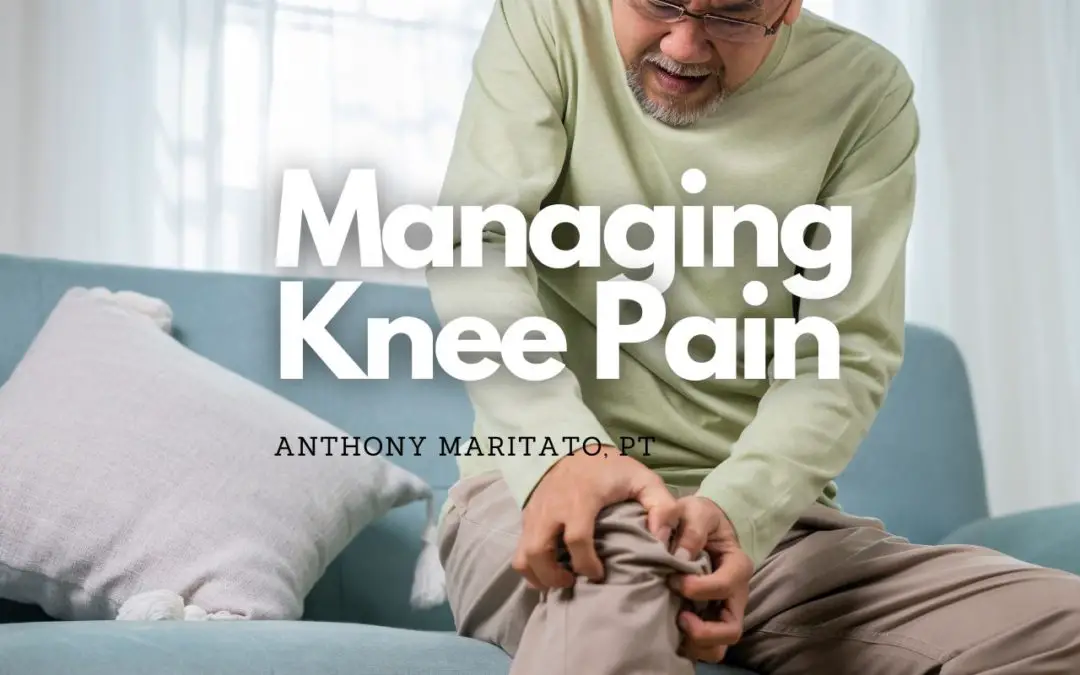
Managing Pain After Total Knee Replacement
Introduction to Managing Pain After a Knee Replacement Undergoing a total knee replacement is a significant medical procedure that can dramatically improve your quality of life. However, the journey to full recovery involves navigating through various challenges, one...
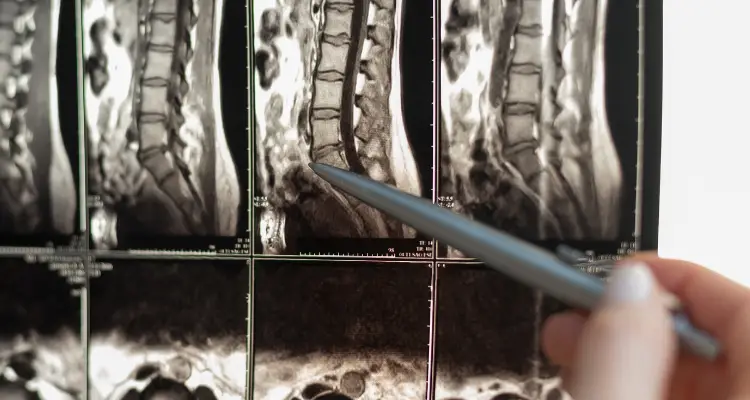
Overview of Spinal Stenosis
Table of Contents What is spinal stenosis What are the symptoms of spinal stenosis How is spinal stenosis diagnosed What are the different types of treatment for spinal stenosis Where to find more information 1. What is spinal stenosis Spinal stenosis is a condition...

Spinal Stenosis Exercises to Avoid: During Knee Replacement Recovery
Spinal stenosis is relatively common among adults having a total knee replacement surgery. While spinal stenosis doesn't always impact total knee replacement recovery, when it does, it can be frustrating. Before I specialized in treating patients after a total knee...

Ride a Peloton After Knee Replacement Surgery
Table of Contents When can I return to riding my Peloton bike at home after a total knee replacement? Is a Peloton bike good physical therapy after a total knee replacement surgery? Will riding my Peloton too much wear out my new knee? How often should I ride my...
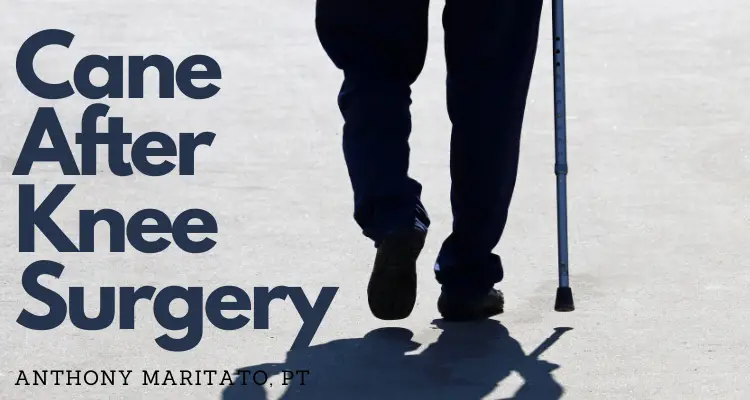
How to Use a Cane After Knee Surgery
Table of Contents Understanding the Purpose of Using a Cane after Knee Surgery How to Properly Use a Cane after Knee Surgery Common Mistakes to Avoid When Using a Cane Transitioning from a Walker to a Cane: When and How? Understanding the Purpose of Using a Cane after...
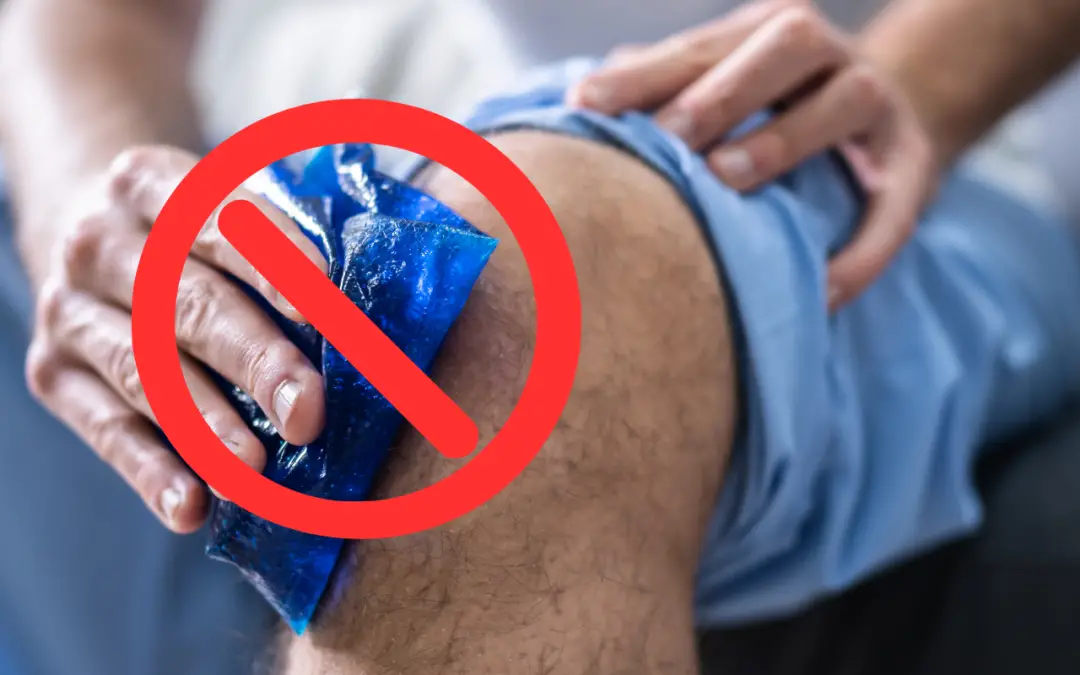
Ice Machine for Knee Surgery
Table of Contents Benefits of Using an Ice Machine After Knee Surgery How an Ice Machine Works Top Ice Machines for Knee Surgery Recovery How to Use an Ice Machine After Knee Surgery Where to Buy an Ice Machine and What to Consider Benefits of Using an Ice Machine...

Walking Your Dog After Knee Replacement Surgery: A Timeline for Recovery
Table of Contents Introduction Walking Your Dog After Knee Replacement Safety Considerations and Precautions Conclusion Introduction Hello, fellow dog lovers and knee replacement warriors! I'm Anthony Maritato, a licensed physical therapist specializing in post-total...

Top 5 Mistakes After Knee Replacement
In this article I will share my experience as a physical therapist and personal trainer of more than 22 years treating patients after total knee replacement surgery. I have seen patients who made every mistake possible and still had a great outcome following this...

Disadvantages of Knee Replacement Surgery
Table of Contents Introduction Pain Time Lost Cost Stress Post Surgical Risk or Complications Conclusion Introduction When considering treatment options for severe knee arthritis, one commonly considered intervention is knee replacement surgery. Despite its high...
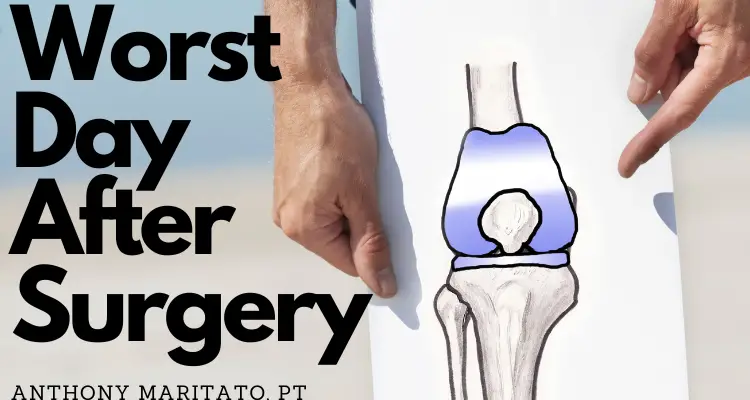
Worst Day After Knee Replacement
What is the worst day after knee replacement? I am a physical therapist who specializes in treating patients after a total knee replacement. In my experience, the worst day after knee replacement is the third day. I will explain why in this article and share some...